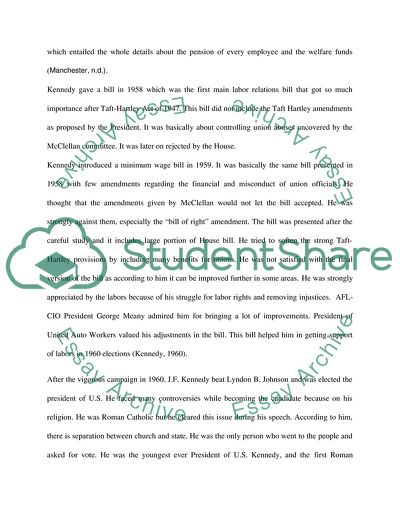Cite this document
(“Biography of John F. Kennedy Research Paper Example | Topics and Well Written Essays - 1750 words”, n.d.)
Biography of John F. Kennedy Research Paper Example | Topics and Well Written Essays - 1750 words. Retrieved from https://studentshare.org/biographies/1743809-john-f-kennedy
Biography of John F. Kennedy Research Paper Example | Topics and Well Written Essays - 1750 words. Retrieved from https://studentshare.org/biographies/1743809-john-f-kennedy
(Biography of John F. Kennedy Research Paper Example | Topics and Well Written Essays - 1750 Words)
Biography of John F. Kennedy Research Paper Example | Topics and Well Written Essays - 1750 Words. https://studentshare.org/biographies/1743809-john-f-kennedy.
Biography of John F. Kennedy Research Paper Example | Topics and Well Written Essays - 1750 Words. https://studentshare.org/biographies/1743809-john-f-kennedy.
“Biography of John F. Kennedy Research Paper Example | Topics and Well Written Essays - 1750 Words”, n.d. https://studentshare.org/biographies/1743809-john-f-kennedy.


